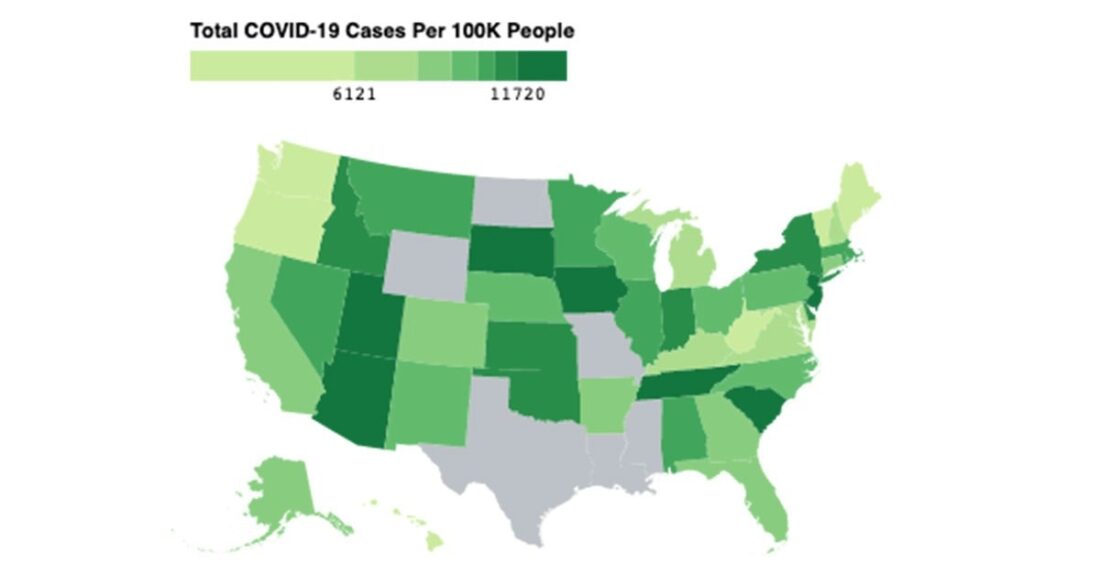New Health Equity Tool Tracks How the Pandemic is Affecting Communities

Researchers are using data to map the COVID-19 pandemic’s impact across the nation and illustrate its disproportionately devastating toll on Black and Latino communities.
Called Health Equity Tracker, the new tool is designed to aid policymakers and leaders in identifying existing racial health inequities so that they can shift resources to the hardest hit communities.
The Satcher Health Leadership Institute at Morehouse School of Medicine in Atlanta launched the tracker, and the Annie E. Casey Foundation joined a consortium of funders — including Gilead Sciences, Google.org and CDC Foundation — to support its development.
“The Health Equity Tracker is an important resource for communities, decision makers and researchers to understand and close the racial gap in health outcomes and ensure that all communities have equitable access to health services,” says T’Pring Westbrook, a senior research associate at the Casey Foundation.
The tracker maps the number of COVID-19 cases, hospitalizations and deaths across the United States by race, ethnicity, gender, socioeconomic status and other social and political determinants of health. Users can customize searches at the county, state, territory or national level.
The tracker also highlights data gaps. For example: It shows that many states do not record information for American Indian, Alaska Native, Native Hawaiian and Pacific Islander racial categories. In doing so, the tool underscores how missing data can mask health inequities among populations and render them invisible in the public’s perception.
Beyond mapping pandemic-related data, the tool also tracks medical conditions associated with COVID-19 — including COPD and diabetes — as well as social factors, such as poverty rates and health insurance coverage. Developers plan to expand the platform, adding data related to mental health, people with disabilities, individuals who are LGBTQ, and more.





